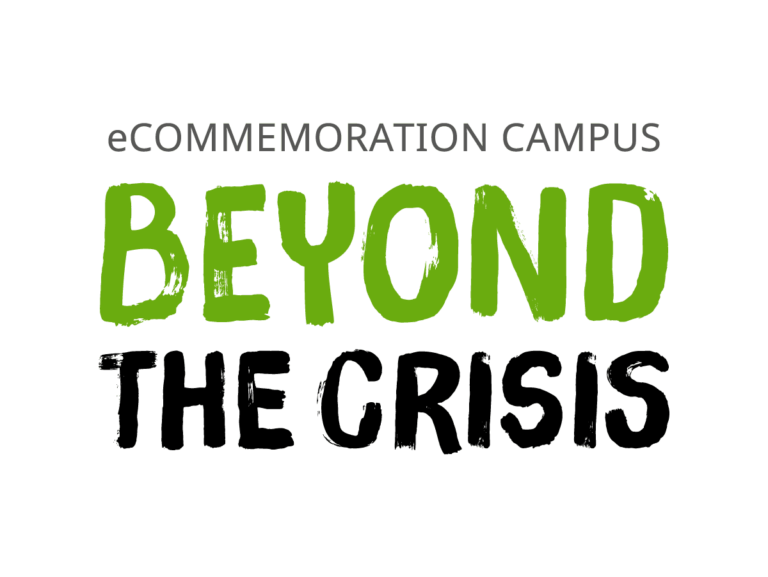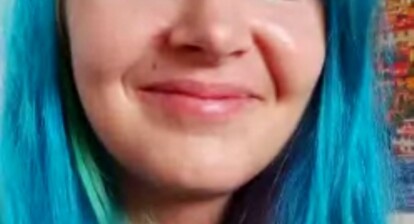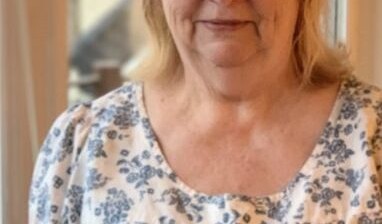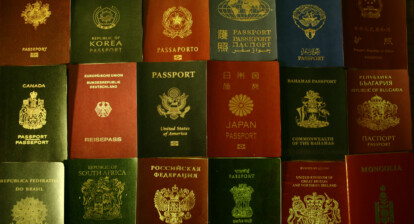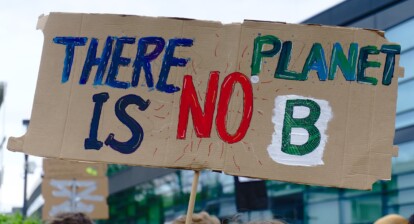Chasing
Memories
Memories
A story about the Socialist regime in Bulgaria and the hatred of a father towards everyone associated with it. A story about love and separation, sadness and death, but also about gathering the pieces of a broken family back together.
By Monika, participant of the eCommemoration Campus 2020
I remember the eyes of my grandfather Stefan. Compassionate, smiling, thoughtful eyes. Whenever he talked about his native village of Chilnov, they seemed to twinkle, gathering all the light of this world within themselves.
The look in his eyes was full of nostalgia for a past that could never be changed, full of memories of a different time in Bulgaria. I was very young when he passed away, but I still vividly remember a specific detail about him. Even when he smiled, there was something about his expression that I couldn't figure out on my own. A tragic memory seemed to cast a shadow over the warmth of his look.
The look in his eyes was full of nostalgia for a past that could never be changed, full of memories of a different time in Bulgaria. I was very young when he passed away, but I still vividly remember a specific detail about him. Even when he smiled, there was something about his expression that I couldn't figure out on my own. A tragic memory seemed to cast a shadow over the warmth of his look.
A short note on objectivity
People often emphasize the importance of objectivity in historical research. Emotions and biased opinions are usually to be avoided because they might make historical facts unbelievable or unauthentic.
However, historical research can get very personal. I have always tried to take an unbiased look at history, but I have come to realize that this might not always be possible. We are all influenced by history. Instead of only talking about the bigger picture, it is sometimes necessary to take personal stories into account.
Our history is a real treasure trove of human experiences. The only way to understand it better is to look at the way it affected the lives of people.
However, historical research can get very personal. I have always tried to take an unbiased look at history, but I have come to realize that this might not always be possible. We are all influenced by history. Instead of only talking about the bigger picture, it is sometimes necessary to take personal stories into account.
Our history is a real treasure trove of human experiences. The only way to understand it better is to look at the way it affected the lives of people.
My Grandfather's Family
One year ago, I decided to visit my grandfather's home village.
I had never been there and sought to meet his friends and relatives, knowing that they might reveal some important information about my family history.
I was lucky enough to have been able to meet Georgi – my great-grandfather's nephew. He was 98 years old at the time and was willing to share his memories of the way Bulgarian Socialism had impacted my family.

My great-grandfather's nephew Georgi during our interview - (photo: private)

My great-grandfather Veliko (on the right) during his military service in World War I (photo: private)
Georgi described my great-grandfather Veliko as a very intelligent, capable and persistent person, a man of honour with an unyielding and a stubborn character. An old photograph depicts Veliko during military service in World War I, holding a book in his hand and looking confidently into the camera.
He was married to my great-grandmother Grozdana. She was a woman with a mild, kind, and obedient temperament, who gave birth to two children – a daughter named Atanaska and a son named Stefan, my grandfather. Grozdana had problems with her vision and was strongly dependent on her husband.
Bulgaria's participation in the First World War led to great economic difficulties for the population. My great-grandfather's family managed to survive, thanks to the fact that they had more property and land than the other people from their village.
He was married to my great-grandmother Grozdana. She was a woman with a mild, kind, and obedient temperament, who gave birth to two children – a daughter named Atanaska and a son named Stefan, my grandfather. Grozdana had problems with her vision and was strongly dependent on her husband.
Bulgaria's participation in the First World War led to great economic difficulties for the population. My great-grandfather's family managed to survive, thanks to the fact that they had more property and land than the other people from their village.
Veliko began to learn a craft – shoemaking, which he later practiced throughout his life. He built a house and set up his shoemaking workshop on the first floor. Initially, he worked alone, but after a while, he hired apprentices to help him with the business. He bought two shoemaking machines from England and equipped the workshop very well.
My interviewee Georgi still remembers the time when Veliko became the mayor of the village of Chilnov in 1930.He was respected by his countrymen for his strong and uncompromising character and appreciated for the craft he developed. His family's good financial situation made it possible for his children to receive a good education and to strive to accomplish their ambitions.

Veliko with his wife Grozdana and son Stefan
(photo: private)
(photo: private)
Bulgarian Socialism
How it changed everything
Historical background
The advent of Bulgarian Socialism in the 1940s marked the beginning of changes and reforms on the countryside. The Agrarian reform took place, which aimed to seize the land of agricultural owners and to unite them in agricultural cooperatives. For the wealthy villagers this process was difficult to accept.
The Bulgarian Communist Party began to dominate the political life in the country in 1944 and seized power two years later. The new Socialist government initiated the Agrarian reform and forced Veliko's family to hand his land over to the Communist party.
This process was very painful for my great-grandfather. He had taken care of his land for so long, had looked after many cows, horses, sheep, and suddenly he was left with nothing. These lands were acquired long ago by his ancestors, but for the new Socialist government to have more than others was a crime and a vice. The communists took his shoemaking workshop as it was a forbidden private business. He had to practice his shoemaking craft in complete secrecy for the rest of his life.
My interviewee Georgi, Veliko's nephew, explained how traumatic this reform was for villagers.
"They [the communists] did not hesitate to beat us till we had given up. They made us sign a document that we would not interfere in the government's policy and activities."
The Bulgarian communist party was willing to do everything in order to punish the rich villagers for not giving away their land. Georgi gave me some other vivid descriptions of their cruel methods:
"In the neighbouring village of Batishnitsa, young boys would occasionally get beaten up with sticks on their bare feet. According to the communists, they had to be punished for being the sons of rich people."
My interviewee further recalled that a group of young people, supporters of the new government, often stood in front of my great-grandfather´s house and shouted: "Kulako, kulako (rich person)! Take out the wheat!"
Deprived of his lands and the opportunity to practice his craft, Veliko remained an uncompromising anti-communist for the rest of his life. He developed an extreme hatred towards everyone associated with the Socialist regime.
At that time, no one assumed that his daughter Atanaska would get involved with a communist agent.
Deprived of his lands and the opportunity to practice his craft, Veliko remained an uncompromising anti-communist for the rest of his life. He developed an extreme hatred towards everyone associated with the Socialist regime.
At that time, no one assumed that his daughter Atanaska would get involved with a communist agent.
The Beginning of the End
The Story of Atanaska


Ana, my great-grandmother Grozdana's niece (photo: private)
During my visit in Chilnov, I had the chance to meet some amazingly kind people. They welcomed me warmly in their houses and were willing to talk about their memories for hours. The look in their eyes was full of light and shadows, an intricate combination of happiness, nostalgia and pain – similar to my grandfather's expression. As if the past had left an imprint on their minds – for them talking about it felt like going through the same experience all over again.
I was happy to meet the niece of my great-grandmother Grozdana. Her name is Ana, 88 years old at the time of my visit. It was a very emotional conversation because she gave me detailed insights into the tragic story of Veliko's daughter Atanaska.
"You remind me of her. She had the same look in her eyes." Ana told me out of nowhere while setting the table for the guests. Having heard that, I wanted to learn about Atanaska´s story even more.
I was happy to meet the niece of my great-grandmother Grozdana. Her name is Ana, 88 years old at the time of my visit. It was a very emotional conversation because she gave me detailed insights into the tragic story of Veliko's daughter Atanaska.
"You remind me of her. She had the same look in her eyes." Ana told me out of nowhere while setting the table for the guests. Having heard that, I wanted to learn about Atanaska´s story even more.
Temporary Happiness
Atanaska was born in 1920 in Chilnov. She inherited the thirst for knowledge of her father, as well as his interest in the political life of the country. My interviewee Ana described Atanaska as a "very talented, open-minded girl, who outgrew her environment". Atanaska was very curious about the world and often purchased foreign magazines, mostly about French fashion and lifestyle. The young woman had big ambitions and was a skilled clothing designer, as well as an artist.
Having grown up in a family with relatively good financial opportunities, she received a good education – first at the Chilnovo School, then at the Girls' Craft School in the town of Byala in 1938. Shortly afterwards, she became a proclaimed master of the craft Tailoring of women's clothing.
Having grown up in a family with relatively good financial opportunities, she received a good education – first at the Chilnovo School, then at the Girls' Craft School in the town of Byala in 1938. Shortly afterwards, she became a proclaimed master of the craft Tailoring of women's clothing.

Atanaska (photo: private)
The following photos are taken from one of her sketchbooks:
Like many other young girls, Atanaska was looking for a soulmate and eventually met a young man from the village of Chilnov – Georgi. Atanaska and Georgi developed strong romantic feelings for each other and their relationship did not remain hidden from their friends and families. Georgi´s family was very supportive of the young couple.
"They were both young, ambitious, highly educated, and also very beautiful. A perfect match", Ana told me with a slight smile on her face. "But there was one big obstacle for their relationship – her father Veliko was strongly against it."
"They were both young, ambitious, highly educated, and also very beautiful. A perfect match", Ana told me with a slight smile on her face. "But there was one big obstacle for their relationship – her father Veliko was strongly against it."
These photos portray Atanaska as a child with her parents, and many years later on the beach in Varna on the Black Sea coast - she could afford to travel around the country. The third photo shows Atanaska and Georgi (standing in the middle) with friends from their village. (photos: private)
A Lonely Wedding –
The Portent of a Tragedy
The Portent of a Tragedy

Atanaska was as persistent as her father and decided to get married without his approval (photo: private)
Challenged by the political situation in Bulgaria's 1940s, Atanaska's father Veliko became very aggressive towards the Communist Party and its supporters. At the same time, Atanaska's lover was undergoing a training related to the imposition of the new Socialist government. Veliko believed that Georgi was a communist agent and a whistleblower for the police. To this day, it hasn't been confirmed whether this statement is true, but Georgi definitely took part in the political life of the new government.
"You must forget about this rebel!" Veliko told his daughter again and again. According to Ana, Atanaska was as persistent as her father, not willing to give up and obey his commands.
Veliko's hatred towards the young man grew as the lovers strengthened their relationship despite his strict rejection. In his eager fight to protect his daughter from the communists he had forgotten to take her feelings into account. The young woman's heart could barely take the criticism. She was highly sensitive but stubborn, which led to her opposing her father and making an important decision on her own – she and Georgi decided to get married.
"You must forget about this rebel!" Veliko told his daughter again and again. According to Ana, Atanaska was as persistent as her father, not willing to give up and obey his commands.
Veliko's hatred towards the young man grew as the lovers strengthened their relationship despite his strict rejection. In his eager fight to protect his daughter from the communists he had forgotten to take her feelings into account. The young woman's heart could barely take the criticism. She was highly sensitive but stubborn, which led to her opposing her father and making an important decision on her own – she and Georgi decided to get married.
Atanaska had a lonely wedding. The small feast got organized by Georgi's parents, but her parents didn't attend the supposedly happy day.
"Her mother Grozdana was begging Veliko to have mercy on his daughter, but he didn't even try to listen", Ana explained, immersed in the memory.
"Her mother Grozdana was begging Veliko to have mercy on his daughter, but he didn't even try to listen", Ana explained, immersed in the memory.
Broken Wings of Freedom
Atanaska moved into Georgi's house, disappointed and discouraged. Her father didn't let her take her belongings with her. The beautiful clothes she had tailored, the sketchbooks, the countless books and magazines she had collected were locked in her room so that she couldn't get them. The most painful was the fact that her family had rejected her. She felt lonely and depressed, even next to the love of her life.
She was bound to be miserable either way. If she had chosen to stay with her family, her love would have shattered, leaving her in the cage of her family's protection. Choosing freedom and love on the other side led to disappointment, confusion and sadness.
The stress Atanaska experienced during these times of hardship was more than she could take. The young woman got really sick a few months after moving into her husband's house. She fell ill due to a severe lung disease, pleural effusion, which was incurable at the time. Veliko finally gave in to his wife's requests to take his daughter home and take care of her.
My interviewee Georgi, Veliko's nephew, still remembers snippets of this time period:
She was bound to be miserable either way. If she had chosen to stay with her family, her love would have shattered, leaving her in the cage of her family's protection. Choosing freedom and love on the other side led to disappointment, confusion and sadness.
The stress Atanaska experienced during these times of hardship was more than she could take. The young woman got really sick a few months after moving into her husband's house. She fell ill due to a severe lung disease, pleural effusion, which was incurable at the time. Veliko finally gave in to his wife's requests to take his daughter home and take care of her.
My interviewee Georgi, Veliko's nephew, still remembers snippets of this time period:
"Atanaska suffered a lot. She would often stay at the window on the second floor of the house, facing the street. Her skin was pale. She looked feeble, tired, and fragile. She often looked outside and waved at the people passing by."
On May 7, 1947, at the age of 26, Atanaska passed away at her home – only a few months of illness. She died along with her dreams and ambitions, her interest in the world, literature, and fashion.
Soon after her death, her beloved Georgi tried to start another family, probably hoping to forget and overcome the tragic loss, but he died the same year due to health complications. That's how a love perished and how two people became victims of the complex political time period .
Soon after her death, her beloved Georgi tried to start another family, probably hoping to forget and overcome the tragic loss, but he died the same year due to health complications. That's how a love perished and how two people became victims of the complex political time period .

Atanaska's necrology in a local newspaper
(photo: private)
(photo: private)

Veliko's house today: empty and abandoned (photo: private)
"Your great-grandmother Grozdana cried her eyes out", Ana told me and pressed her lips tightly.
After Atanaska's death, her mother Grozdana almost completely lost her vision.
My mother, who is also named Atanaska, and my uncle Vladimir remember seeing the chests with aunt Atanaska's belongings in the old house – books, magazines, sketchbooks. Everything she was deprived of as a punishment was still there. They took some of her sketchbooks in time and have kept them until now.
After Atanaska's death, her mother Grozdana almost completely lost her vision.
My mother, who is also named Atanaska, and my uncle Vladimir remember seeing the chests with aunt Atanaska's belongings in the old house – books, magazines, sketchbooks. Everything she was deprived of as a punishment was still there. They took some of her sketchbooks in time and have kept them until now.
My great-grandfather Veliko eventually sold the house and burned the magazines and clothes of Atanaska. All we have left are her sketchbooks.
Gathering Pieces Back Together
Veliko's family had only one child left – my grandfather Stefan, who was 17 years old when his sister died. He was their only hope. That is why they treated him with more understanding and gave him the chance to choose his own path in life. Losing Atanaska was difficult enough and no one wanted to repeat the mistake all over again.
Stefan graduated from a school in the city of Ruse and became the head of the telegraph-post office in the small village of Sratsimir, where he spent the rest of his life. He married my grandmother Kera, and they never separated. They had two kids, my mother Atanaska and my uncle Vladimir.
Stefan graduated from a school in the city of Ruse and became the head of the telegraph-post office in the small village of Sratsimir, where he spent the rest of his life. He married my grandmother Kera, and they never separated. They had two kids, my mother Atanaska and my uncle Vladimir.

My grandmother Kera and grandfather Stefan
(photo: private)
(photo: private)
Grandpa was an active member of the Bulgarian Communist Party despite his father's hatred towards the government.
A New Take On Nostalgia
I don't want to depict my great-grandfather as the antagonist of the story. He was a victim of the time he lived in, a victim of the unfair treatment and cruel methods of the Socialist government that forced him to be tough and show no mercy. Even for his daughter.
Many people in his family, like his son Stefan - my grandfather, accused Veliko of not keeping his family's house. But they didn't question how he had felt in this empty home, which had preserved so many painful memories.
Many people in his family, like his son Stefan - my grandfather, accused Veliko of not keeping his family's house. But they didn't question how he had felt in this empty home, which had preserved so many painful memories.
I will never forget the eyes of my grandfather Stefan. To this day I think about the stories, hiding in the wrinkles of his smiling face. The stories I've heard and the ones that I never will. I think about the way he looked at old photos and talked about his village. I think about it, I remember it, I dive into the past.
Nostalgia has taken its grip on me and it doesn't leave me alone.
But nostalgia can be productive, too. Instead of looking away from history and political discussions, because they seem too far away from our reality, we should be active members of our society. Changing the world step by step. Not giving up. No matter the crisis, no matter the difficulties.
Everything which happens in our lives is influenced by history. Politics might seem chaotic and confusing, but they are as important as major historical events and usually lead to them. A crisis in society is equal to a crisis in a family. A historical crisis inevitably leads to a personal one.
Every time I look in the mirror, I can see the eyes of my ancestors. It is as if their stories are written on my face and their emotions are hidden in my veins. They are a part of me and I will never forget about it – because history is part of our future.

